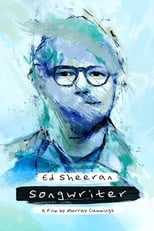View Quote
John Milton, Arcades, line 68.
View Quote
John Milton, Areopagitica (1644).
View Quote
John Milton, Comus (1637), line 244.
View Quote
John Milton, Hymn on the Nativity, Stanza 13.
View Quote
John Milton, Il Penseroso (1631), line 161.
View Quote
John Milton, Paradise Lost (1667; 1674), Book I, line 708.
View Quote
John Milton, Paradise Lost (1667; 1674), Book V. 620.
View Quote
John Milton, L'Allegro, line 143.
View Quote
John of Patmos, Revelation 14:3, NWT.
View Quote
John Rockwell (1983). All American Music: Composition in the Late Twentieth Century. New York: Alfred A. Knopf. ISBN 0394511638.
View Quote
Joseph Addison, A Song for St. Cecilia's Day, Stanza 4.
View Quote
Josiah Gilbert Holland, Plain Talks on Familiar Subjects, Art and Life.
View Quote
Language addresses itself to the ear. No other medium does this. The ear is the most spiritually determined of the senses. That I believe most men will admit. Aside from language, music is the only medium that addresses itself to the ear. Herein is again an analogy and a testimony concerning the sense in which music is a language. … Language has time as its element; all other media have space as their element. Music is the only other one that takes place in time. … Music exists only in the moment of its performance, for if one were ever so skillful in reading notes and had ever so lively an imagination, it cannot be denied that it is only in an unreal sense that music exists when it is read. It really exists only being performed. This might seem to be an imperfection in this art as compared with the others whose productions remain, because they have their existence in the sensuous. Yet this is not so. It is rather a proof of the fact that music is a higher, or more spiritual art.
View Quote
Lathrop, Music of Growth.
View Quote
Leibniz, Gottfried Wilhelm. From a letter to Christian Goldbach, April 17, 1712. Quot. after: Schäfke, R. Geschichte der Musikästhetik in Umrissen. Mit einem Vorwort von Werner Korte. 2 Aufl. Tutzing, Schneider, 1964, S. 289
